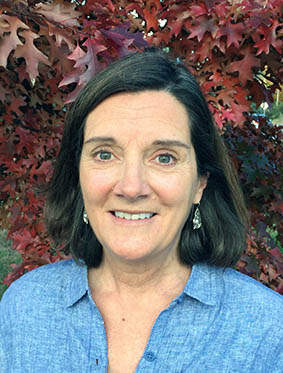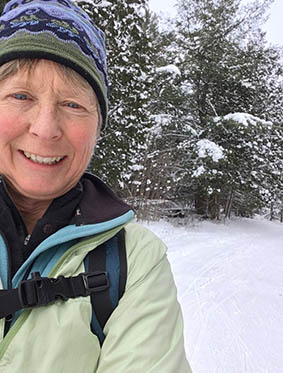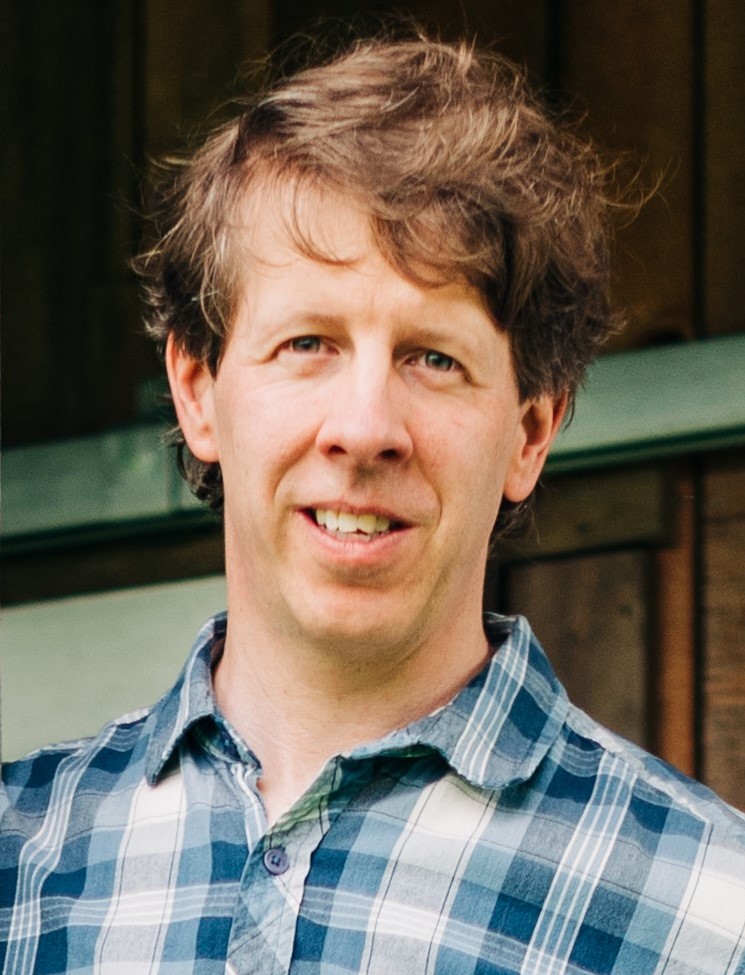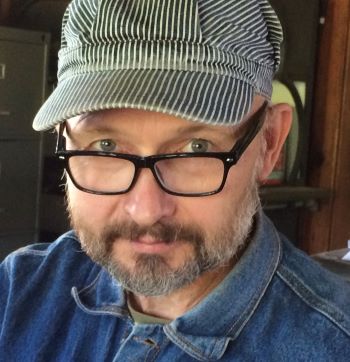Dear Members, it is time to start thinking about voting for your Board of Directors and your 87th Annual Membership Meeting. The meeting will be held Thursday, May 7, 2026, so save the date. The current directors up for re-election in 2026 are Vice President Mary Just Skinner, Treasurer Don Douglas, and Director Jean Hamilton. If you are interested in running for a seat on the Board, please review the Co-op Overview & Confirmation of Membership Form below.
Co-op Overview & Confirmation of Membership Form (pdf)
Candidate Packet 2026 (pdf)
Quick Links
VOTING
In 2023, voting will take place by mail and in person at the Annual Meeting. In April, you’ll receive a packet containing ballots for the Board of Directors election and any bylaw changes, plus the Annual Meeting issue of Co-op Currents. Check the deadline to post your votes by mail. WEC members may write in names of unofficial candidates. All candidates run at-large.
WEC will hold an in-person Annual Meeting on Thursday, May 4, 2023. Members are welcome to vote in person this year.
If your voting packet is missing any items, contact us immediately at 802-224-2322.
Thursday, May 2, 2024
Doors open at 4:30 p.m., program begins at 5:00 p.m., buffet opens at 5:30 pm
Barre Auditorium - 16 Auditorium Hill, Barre, VT 05641
Unapproved - 2023 Annual Membership Meeting Minutes - please click to review
At the Annual Meeting...
- Director elections, Co-op business, Q&A with staff and Board members
- Registration and ballot boxes open at 4:30 pm; Buffet opens at 5 pm
- Business meeting begins at 6:00 pm (tentative) - Agenda here
- Dinner at no charge by reservation only*
- All are welcome, including kids!
Special Presenter: Erica Heilman, producer of the podcast Rumble Strip.
Questions? Please call Rosie Casciero at 802.224.2322.
*To help reduce waste, no-shows will incur a $3 charge on their May electric bill. If you find that you are unable to attend after registering, please call Rosie before April 26 to cancel the reservation and you will not be charged. Thank you!
Current BOD Candidates
Thank you for considering my second term as Director of the Washington Electric Coop. I was first elected during a Zoom meeting in 2022 with Patrick Ross fiddling away in the background. Joining the Board was equal parts excitement and trepidation given the continuously evolving utility industry. Thanks to detailed orientation sessions and mentoring from both former and current Board members I
have amassed a decent command of WECs challenges and strengths and am prepared to maximize that experience, knowledge and resources in a second term.
For the past 3 years I’ve been a freshman member of the Finance, Administration, and Power Planning (FAPP) Committee and the Power and Operations (P&O) Committee. I have also taken on an advisory role in Community Fund disbursements (N.B. if you are not familiar with this program visit WECs website for information on financial support for your non-profit or community organization. I love the Community Fund program which is well aligned with cooperative principles, funded through donations of capital credits by members, and benefits our greater community.
My 3-year stint taught me a lot and was certainly one for the history books. I started in the midst of considerable staff and Board changes and the subsequent transfer of decades of knowledge and experience. Then back-to-back storms in December 2022 caused an extended outage during the holidays followed by unprecedented flooding in July 2023 and again in 2024. It should be no surprise then that FEMA updates become a regular agenda item with implications for budgets and cash flow.
WEC staff have been stellar in responding while simultaneously working towards improved communications, reliability, and resilience. The workplans developed by staff and their consultants and reviewed by the Board identify the tools and resources needed to mitigate service vulnerability. Our challenge has been to appropriate the financial means to implement projects being cognizant of increased costs. Projects are already underway to update substation infrastructure, install an automated metering information system, and optimize right-of-way management. While storms and outages will surely continue, WEC is becoming better equipped to respond to, and rebound from them.
I truly appreciate those who have reached out to me to discuss WEC issues, statewide energy policy, and the affordability of electricity. I welcome the opportunity to continue the conversations, to serve on the Board and to see the work we have invested in these past three years come to fruition.
Hello Members!
After serving as a Board Director, and Secretary, for three years, I am running again for another three year term and would appreciate your support. It is lovely to meet and greet and talk with so many of you at the Annual Meetings, informally around towns, and through this Current publication.
When I built my home in East Hardwick in the early 2000s, I wanted nothing to do with the electric grid! I put in a small solar system with a gas generator and used as little electricity as possible. The only unit plugged in full time was a refrigerator. I walked out of a room and turned the lights off (still do!).
Today I live with my partner in Plainfield and am 100% on our grid with multiple units plugged in 24/7! Unfortunately, our home is in the woods, so solar is not a viable option now. But I feel so fortunate to be part of the Washington Electric Cooperative that provides 100% renewable energy for all of us.
As a retired elementary teacher and math coach to teachers for over 30 years, I now have the opportunity to serve our communities in a new way. That is why I ran for the Board three years ago, and again now.
In addition to that commitment, I am a bit of a fitness nut and am active in Pilates, dance, cross country skiing, hiking, gardening and cooking, swimming, biking, splitting, stacking and burning wood. (Our wonderful neighbor, Mike Nolan, fells the trees for us.)
One of my favorite seasonal activities, though, is maple sugaring. My partner and I built the cutest little 12 x 16 sugarhouse, from hemlock on our land, for my Leader Half Pint evaporator. I hang two dozen buckets and gather by hand. Last year was easy with almost no snow on the ground. Sometimes my grandchildren, who live in Atlanta Georgia, are visiting and love to help gather and drink the sap and eat pancakes with syrup!
We may be a diverse community of 41 towns in our electric cooperative, but we all have a common need for reliable and affordable electricity. As your board representative, that is what I strive to support.
With thanks,
Betsy Allen
As a father, business owner, and (outside of eight years following college) lifelong Vermont resident, I have had a vested interest in the well-being of Vermont and its communities for a long time. I have spent the past 25 years building the business I founded and the past nine raising my daughter, Elena, with my wife, Judy. We have been WEC members in East Montpelier since 2018. My interests and experience in energy, technology, planning, risk management, permanence, and equity align well with the Board’s mission.
Having attended or viewed recordings of all WEC Board meetings over the past year, I am familiar with the issues WEC faces and the dynamics of management and the Board. WEC members are fortunate to have many conscientious, dedicated, and intelligent WEC employees and Board members; I agree with most of the recommendations and decisions I have seen.
This being said, I have concerns about the implications that limitations in WEC’s resources and will are having on members and the organization. With this in mind, as a Board member, I will advocate for the following:
- Increased Advocacy. WEC has a proud history of working to shape electricity access in Vermont on behalf of Vermonters. However, from net metering to the Renewable Energy Standard updates in 2024 and the Clean Heat Standard, powerful energy lobbies focused on profit over serving Vermont consumers are exercising control over our energy. All utilities, including WEC, should be more vocal and forthright in raising concerns about – and, in some cases, directly opposing – energy legislation and regulations that are regressive and will harm Vermont consumers. Simultaneously, WEC should be encouraging things like “future proof” electrical code and advocating for more direct and meaningful value for members from Efficiency Vermont and its regulators.
- Address the Scope of Change. Particularly as a small player, WEC should be proactive in planning how to navigate the changes in electricity markets and technology that AI, Big Tech, and increased consumer demand are creating. Increasing diligence now will minimize disproportionate rate increases and less reliable electricity in the future.
- Explore Resource Opportunities. While WEC continues to face challenges serving its rural territory with limited resources, opportunities and the regulatory climate differ from the past. The Public Utility Commission (PUC) has made it evident that they would like universal regulations for utilities across the state. The benefits and viability of sharing resources and/or merging with other utilities for more stable, reliable, and lower-priced electricity should be considered and pursued.
The past should be respected, but it is important to be dynamic to thrive in the future; WEC’s members will benefit from the organization being as future-facing as possible. As a productive and committed member of the WEC Board, I will work hard and advocate for members. I look forward to continuing to learn about the complexities that drive the greater electrical grid, proposing well-vetted ideas, and contributing to the team that helps make it all work. I am grateful for the opportunity to earn your vote.
Please don’t hesitate to reach out to discuss energy in general or WEC in particular.
Three generations of my family have been WEC members since WEC strung power lines across our Plainfield farm, my home since birth. When I was first elected for WEC Board, I ran in support of what I call Home-Generated power*, aka DERs (Distributed Energy Resources). DERs with which WEC members are most familiar are NM (net metered) systems, the most common form of which are rooftop and back yard solar.
Recently, Co-op Currents published articles describing how such systems shift WEC infrastructure maintenance costs from NM members to those who cannot or choose not to install NM, a cost shift these articles characterize as unfair. While none of these articles claim WEC is expressly anti-NM, they don’t have to.
If the US is to shift its energy demand away from fossil fuels, there will be a dramatically increased demand for clean electricity. One way to solve that is to add generation to the grid. Another solution is to remove load from the grid. Generating power at (or near) the point of use is oneway to reduce load. While wide spread indiscriminate deployment of “basic” NM creates load management headaches for utilities, if properly matched to loads, or coupled with storage, DERs can benefit both the utility and the end user.
NM’s infrastructure maintenance cost shift can be partially addressed in the utility’s rate design, but a better solution is for the legislature to identify less regressive funding sources for consumer choices they wish to incentivize.
As a tenth-generation Vermonter, I strongly believe independence is key to rural living, but the fleeting nature of electricity makes energy independence really elusive. I’m optimistic the day will come when energy independence will cost the average homeowner about as much as a new heating system (and/or will be integral to it), and rural power outage emergencies will be obsolete.
It took out-of-the-box thinking to extract WEC from its commitment to Seabrook Nuclear, and to build Coventry. If WEC wants to continue to pioneer revolutionary, innovative, cost-effective, environmentally friendly means to keep members ’homes and businesses powered, and illuminated, then WEC’s “generals” need to fight this war, not the last one.




